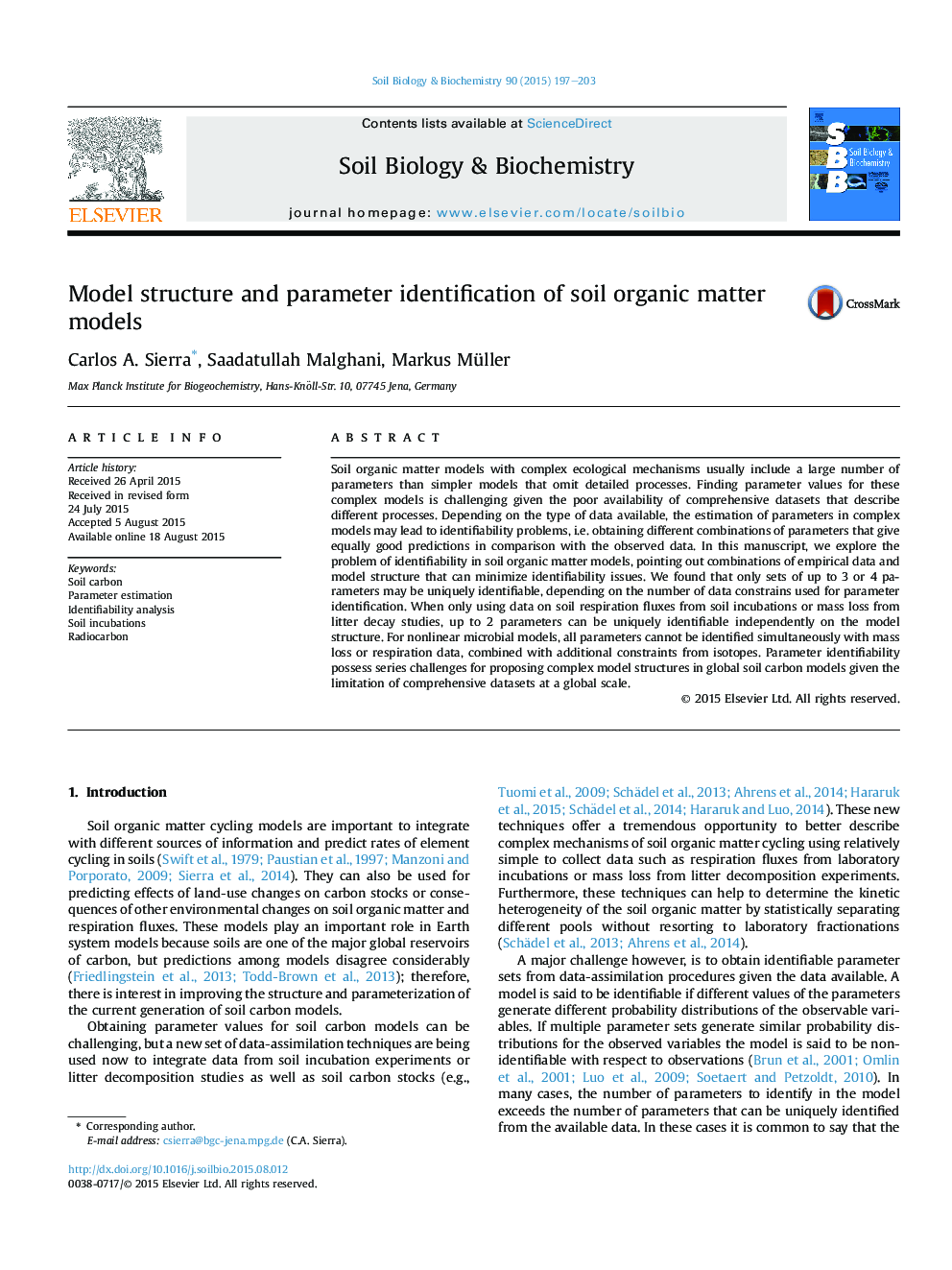| Article ID | Journal | Published Year | Pages | File Type |
|---|---|---|---|---|
| 2024393 | Soil Biology and Biochemistry | 2015 | 7 Pages |
Abstract
Soil organic matter models with complex ecological mechanisms usually include a large number of parameters than simpler models that omit detailed processes. Finding parameter values for these complex models is challenging given the poor availability of comprehensive datasets that describe different processes. Depending on the type of data available, the estimation of parameters in complex models may lead to identifiability problems, i.e. obtaining different combinations of parameters that give equally good predictions in comparison with the observed data. In this manuscript, we explore the problem of identifiability in soil organic matter models, pointing out combinations of empirical data and model structure that can minimize identifiability issues. We found that only sets of up to 3 or 4 parameters may be uniquely identifiable, depending on the number of data constrains used for parameter identification. When only using data on soil respiration fluxes from soil incubations or mass loss from litter decay studies, up to 2 parameters can be uniquely identifiable independently on the model structure. For nonlinear microbial models, all parameters cannot be identified simultaneously with mass loss or respiration data, combined with additional constraints from isotopes. Parameter identifiability possess series challenges for proposing complex model structures in global soil carbon models given the limitation of comprehensive datasets at a global scale.
Related Topics
Life Sciences
Agricultural and Biological Sciences
Soil Science
Authors
Carlos A. Sierra, Saadatullah Malghani, Markus Müller,
